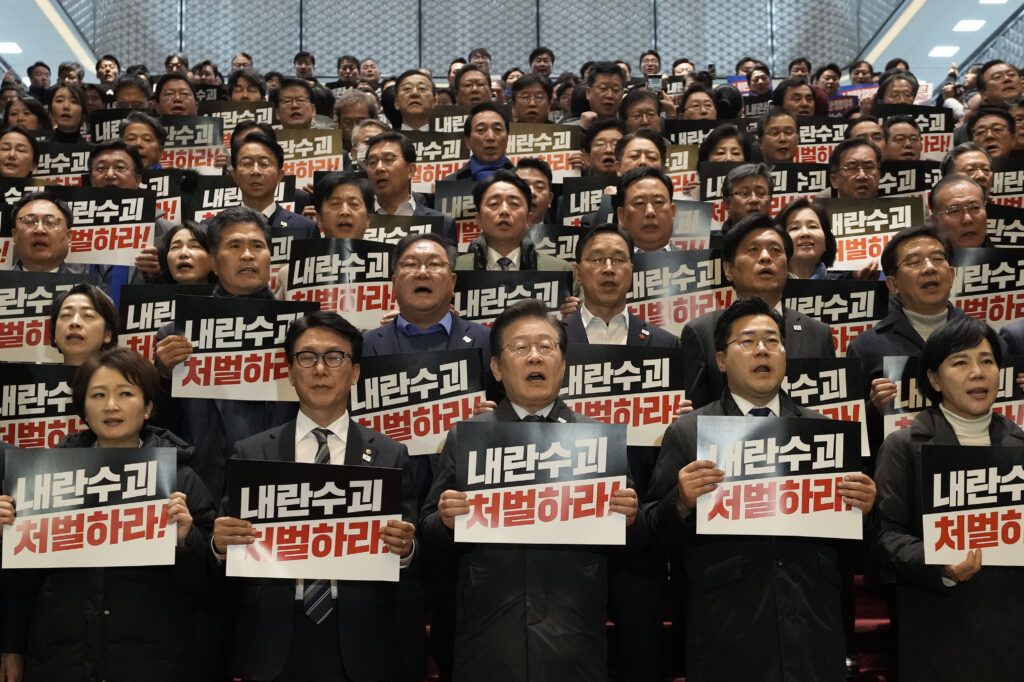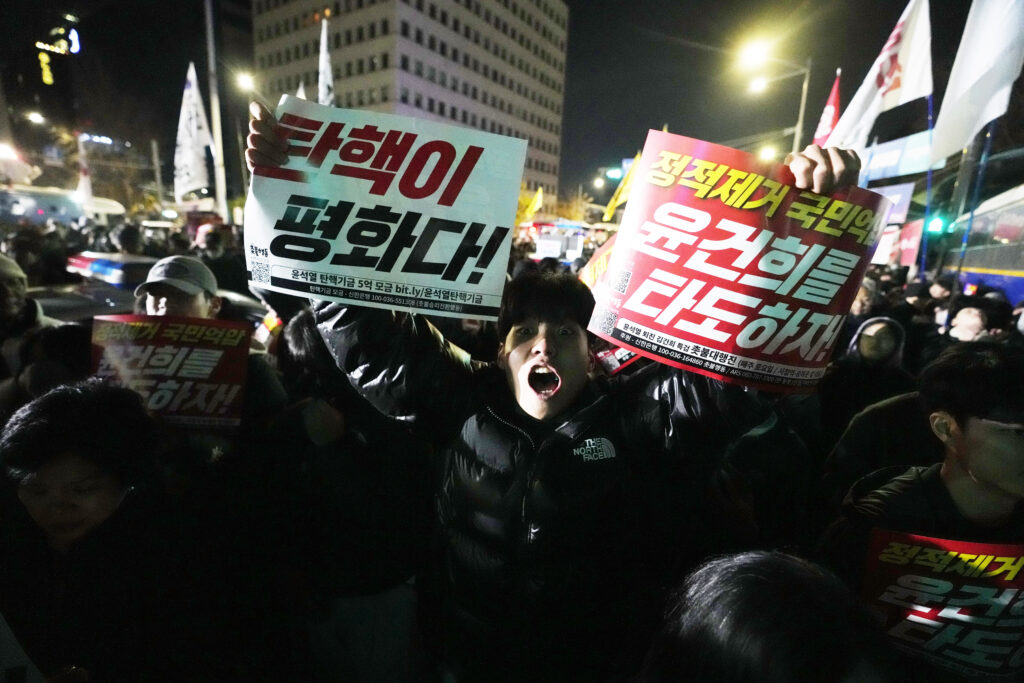South Korea’s Yoon, After Botched Martial Law Declaration, Avoids Impeachment — for Now
Within days looms another vote that could end his presidency, as political drama shakes one of America’s closest allies.

South Korea’s president, Yoon Suk-yeol, has barely escaped impeachment but faces another removal vote in the National Assembly within days in a non-stop political drama that’s shaking one of America’s closest allies.
Facing the loss of the presidency that he won by less than one percent of the vote in 2022, Mr. Yoon survived when his “ruling” People Power Party mostly stuck together in the assembly. Needing 200 of 300 assembly votes to impeach him, the opposition Minju or Democratic Party could muster only 195 votes, including those of minor leftist party members and three from Mr. Yoon’s own party.
Political turmoil has rocked Korea since Mr. Yoon declared martial law five days ago, only to rescind the decree six hours later after the assembly voted against it. The turmoil is unlikely to end just because Mr. Yoon has so far survived demands for his ouster. Tens of thousands of his countrymen, both for and against him, promise to fill the streets of Seoul and other cities in coming days as he fights on to remain in power. South Korea’s impassioned politics are capable of turning out crowds of more than 1 million.
Yet Mr. Yoon managed to hold his fragmented party together, apologizing in a television address for having precipitated the chaos by his martial law decree and promising to yield power, in effect, to the leaders of his party.

The Democratic Party insists on presenting an impeachment motion again and again until the motion wins the necessary two-thirds vote by the assembly. Impeachment would then need approval by six of the nine members of the constitutional court — an obstacle that might be difficult to overcome.
The leader of Mr. Yoon’s own party, Han Dong-hoon, has said it is “inevitable” for him to step down since he is no longer able “to perform his duties effectively,” according to Seoul’s Yonhap News. It seems unlikely, though, that he will be forced to resign, if only because the leader of the Democratic Party, Lee Jae-myung, faces criminal charges for corruption and other offenses and his foes are adamantly against him.
“The ruling party members fear that the downfall of Yoon’s government could pave the way for another leftwing populist regime to take over,” writes a long-time Korean commentator, Shim Jae-hoon. Even so, he adds, Mr. Yoon “is now the target of international condemnation, making it uncertain how long he can survive, even with the backing of his die-hard allies. “
Mr. Lee, whom Mr. Yoon defeated by an eyelash in the last presidential election, has marshalled the Democratic Party behind him but is expected to face a series of court cases in coming months. He is linked to the unexplained deaths of at least five people who might have testified against him.
One assembly member of Mr. Yoon’s party, Cho Kyoung-tae, contemplating the danger of Mr. Lee’s revival as a presidential candidate, backed away from his earlier demand for Mr. Yoon’s “early resignation.” Rather, Yonhap reported, the party leader “should take full responsibility” — a way of dodging the issue.

The Democratic Party also failed in the National Assembly to muster the votes needed for a bill calling for special investigation into the alleged corruption of Mr. Yoon’s spouse, Kim Keon-hee. Mr. Yoon had earlier vetoed the bill, meaning that it needed approval by two thirds of the assembly, but only 198 members, including five from Mr. Yoon’s party, voted in favor.
Controversy surrounding Mr. Yoon’s wife has been one of the most contentious issues. This emerged when she was caught on video accepting a costly Dior handbag. That was one of many instances, say her foes, of her corruption. Mr. Yoon’s outrage over the repeated attempts to investigate his wife is believed to have been a major reason why he imposed martial law in the first place.
The drama, though, has deeper roots, according to Mr. Shim, who spent most of his career as correspondent of the Far Eastern Economic Review. “The center-left Democratic Party, supported by industrial unions and the underprivileged urban poor, is determined to retake the government from the conservative, pro-business section of voters,” Mr. Shim writes.
Korea’s Gallup Poll, he adds, “shows Yoon’s popularity today down to 13 percent, the lowest on record. While the immediate crisis was short-lived, Yoon’s gaffe could have longer-term policy ramifications both at home and abroad.”
Mr. Shim placed much of the uncertainty on the question of President Trump’s policies when he returns to the White House. Since Trump “has stated he intends to restart dialogue with Pyongyang,” Mr. Shim writes, “Yoon’s recent efforts to expand and institutionalize bilateral and multilateral security cooperation may be in peril.”

